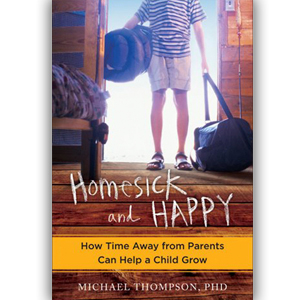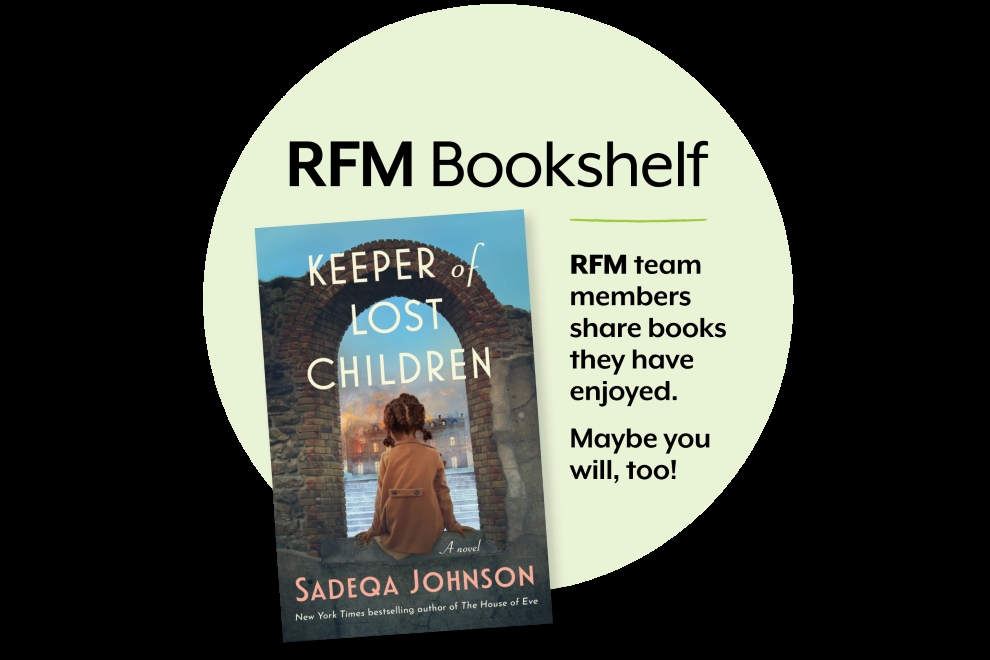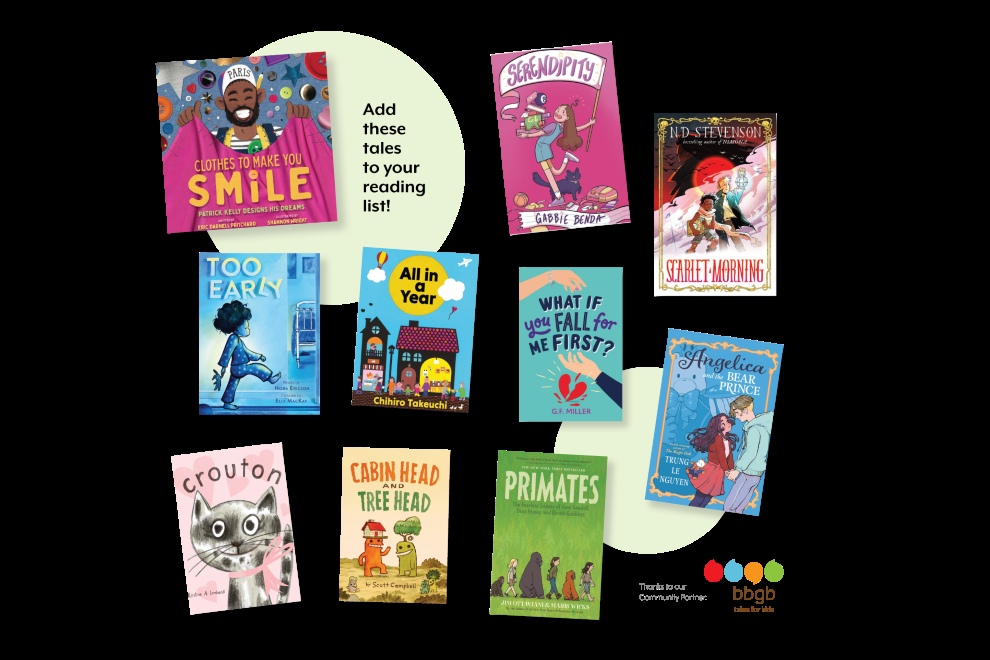 This month I’m featuring Homesick and Happy by Michael Thompson in honor of my older daughter attending sleep-away camp for the first time. With helicopter parents becoming more and more prevalent, I picked this book to reassure me that time away from parents can help a child grow. I’d been to camp when I was in middle school and had a great time so I desperately wanted the experience for my daughter. But I’ll admit it was difficult accepting it was time to let her go. In my eyes, she’ll always be my baby.
This month I’m featuring Homesick and Happy by Michael Thompson in honor of my older daughter attending sleep-away camp for the first time. With helicopter parents becoming more and more prevalent, I picked this book to reassure me that time away from parents can help a child grow. I’d been to camp when I was in middle school and had a great time so I desperately wanted the experience for my daughter. But I’ll admit it was difficult accepting it was time to let her go. In my eyes, she’ll always be my baby.
Thompson blends practical advice with his expertise as a clinical psychologist to prove why it’s important for children to go to sleep-away camp. Thompson was motivated to write this book not only by his own childhood but also by the growing apprehension among parents to question letting their children go, even when it’s an overnight field trip run by their child’s school. Therefore, Thompson visited nineteen camps and talked to hundreds of counselors and kids in the hopes of convincing parents that “character” camps, as he calls them, benefit our kids more than “skill” camps. Think places that build community as opposed to places that help kids master a sport or an instrument.
“When I ask for the sweetest moments without parents, 80 percent of adults tell variations on a similar story that always have the same four or five elements: The child is away from adult supervision, out-of-doors, with friends, facing a challenge and doing something a bit risky,” Thompson writes. Interestingly, many parents who shared just such a moment were still reluctant to send their own kids away, believing we live in a “scarier” world. But in actuality, Thompson argues, “Rates of violent crime are at historic lows in the United States.”
While I’m not worried about violent crime, I could relate to this idea of putting your kid in a risky situation. My daughter will be going to horseback riding camp with a friend, whose mom was extremely worried about them being safe. I kept remembering all the days I spent when I was my daughter’s age, riding around bareback on my friend’s horse, usually both of us at the same time, through the fields near her horse, unsupervised for hours on end. It was wonderful, and while I certainly don’t want my kid to get hurt, I couldn’t help feeling like, “Surely, our kids could handle a couple of hours in a corral with a riding instructor.”
Thompson writes, “In my conversation with parents, they are often surprised and relieved to learn that developmentally speaking, there is a limit to what they can and should do for their children. More specifically, there are eight fundamental things parents want to do for or give their children, but cannot:”
- We cannot make our children happy.
- We cannot give our children high self-esteem.
- We cannot make friends for our children or micromanage their friendships.
- We cannot successfully double as our child’s agent, manager, and coach.
- We cannot create the “second family” for which our child yearns in order to facilitate his or her own growth.
- It is increasingly apparent that we parents cannot compete with or limit our children’s total immersion in the online, digital, and social media realms.
- We cannot keep our children perfectly safe, but we can drive them crazy trying.
- We cannot make our children independent.
The reality is while being away from home can be scary for kids it can also make them happy. “Sometimes they have to get away from us and experience a little suffering in life, along with the full range of feelings in life – boredom, anger, giddiness, romance, et cetera – to get the hang of it on their own,” Thompson argues. My older daughter’s second family resides at the gymnastics center, where she trains, and I’ll admit it caught me a bit off guard the first time she referred to them as her gymnastics “family.” My knee-jerk reaction was, “Aren’t we enough?” Well, we’re not. And we shouldn’t be. As a parent, it’s hard to admit, but it’s true. Don’t worry. It’s not a bad thing. It’d be like saying your kids are enough; you don’t need any friends. I don’t know what I’d do without the ladies I “lunch” with. My second family growing up was ACT II, a theater school I practically lived at during productions. Some of my happiest childhood memories happened there. I’m grateful gave me the opportunity to spread my wings.
Thompson claims, “As long as a parent is standing by watching, the child is going to interpret his or her experiences through the parents’ reactions,” which is why kids need time away from parents to grow. I’m looking forward to reading the rest of Homesick and Happy, particularly the chapter “’Childsick’ and Happy.” Because just as much I want my 11 year old to experience “The Magic of Camp,” I also don’t want to be one of those moms who have nothing to share on Facebook but her children’s accomplishments. So whether you’re looking to justify the cost or needing reassurance to let your child go, check out Homesick and Happy if you want to know more about how the real danger of childhood is parents holding on too tight.
Follow @WinterhalterV on Twitter for updates on blog posts or like Parenting by the Book on Facebook.



